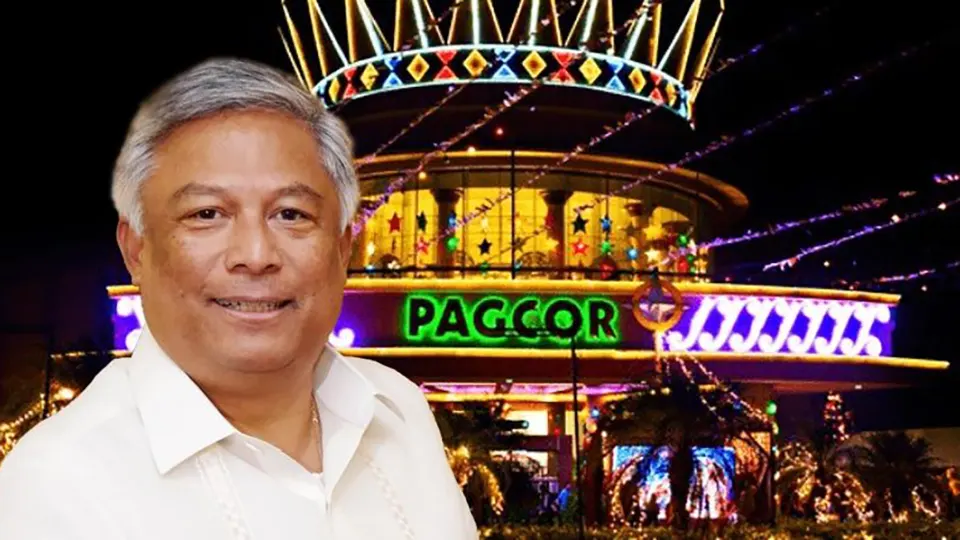The ongoing Pagcor casinos privatization updates have captured global attention, as the Philippines moves to reshape one of Asia’s most dynamic gaming markets. The Philippine Amusement and Gaming Corporation (Pagcor), long known as both operator and regulator of state-owned casinos, is now preparing for a major transition toward private ownership. This shift is designed to improve efficiency, attract international investors, and boost government revenues, while also raising questions about regulatory oversight and market stability.

For stakeholders—from policymakers and investors to casino operators and local communities—the privatization represents both opportunities and challenges. As new developments unfold, it is essential to understand the financial, legal, and ethical dimensions of the process, as well as its potential impact on the broader global gaming industry.
The Philippine Amusement and Gaming Corporation, commonly known as Pagcor, plays a pivotal role in the gaming industry within the Philippines. Established in 1977, Pagcor is tasked with regulating and operating various gambling establishments, including casinos. Here’s a brief overview:
- Regulatory Body: Pagcor serves as the government’s primary regulator for gaming activities.
- Revenue Generation: It contributes significantly to the national treasury, funding various government projects.
- Casino Operations: Operates state-owned casinos, providing entertainment and jobs.
Current Status of the Privatization Efforts
Government Oversight and Regulatory Body
The privatization of Pagcor casinos is under careful scrutiny by various government entities. Key players involved include:
- Department of Finance: Responsible for fiscal implications and financial assessments.
- National Economic and Development Authority (NEDA): Evaluates the economic impact of the privatization.
- Pagcor: The main regulatory body overseeing the transition process.
These organizations aim to ensure that the shift from government-operated to private ownership enhances efficiency while maintaining transparency and fairness in the industry.
Recent Developments in the Privatization Process
Recent updates on the Pagcor casinos privatization initiative indicate significant progress:
- Engagement with Investors: Initial discussions with potential private investors have commenced, aiming to attract interest.
- Financial Assessments: Comprehensive evaluations are being conducted to determine the value of Pagcor assets.
- Regulatory Framework: Drafting of new regulations to facilitate private ownership while safeguarding public interests is underway.
As the Pagcor casinos privatization updates unfold, stakeholders are closely monitoring these advancements, which are vital for steering the sector towards a more competitive landscape. Continuous engagement and transparency will be pivotal for the success of this transition.
Key Stakeholders Involved
Philippine Government’s Role
The Philippine government plays a crucial role in the ongoing Pagcor casinos privatization updates. As the regulatory body overseeing gaming operations, it is responsible for ensuring that the privatization process aligns with national interests and economic growth. Here are some key aspects of its involvement:
- Regulatory Oversight: Ensuring compliance with laws and regulations.
- Economic Strategy: Formulating policies to maximize revenues from privatization.
- Investor Relations: Facilitating communication between potential investors and existing stakeholders.
Impact on Investors and Operators
The Pagcor casinos privatization updates bring significant implications for investors and casino operators:
- Investment Opportunities: The shift to privatization opens new avenues for capital infusion and expansion.
- Market Adjustments: Investors should be aware of potential shifts in operational dynamics and market competition.
- Return on Investment: Increased operational efficiency post-privatization may enhance profitability for investors and operators alike.
Understanding these changes is essential for stakeholders looking to navigate the evolving landscape of the Philippine gaming industry.
Financial Implications of the Privatization
Projected Revenue Growth
Apacaff | The ongoing privatization process of Pagcor casinos is expected to generate substantial revenue. This initiative aims to enhance operational efficiency while maximizing profitability, potentially transforming the financial landscape of the gaming industry. In the coming years, we foresee significant revenue boosts along with robust economic developments.
Effects on Local Economies
The privatization strategy is not only focused on revenue but also promises to invigorate local economies. Here are the anticipated outcomes:
- Development of infrastructure supporting casino operations.
- Increased investment in community projects and amenities.
- Enhanced competitiveness in the gaming market.
| Year | Projected Revenue | Economic Impact |
|---|---|---|
| 2024 | $XX million | Significant Job Creation |
| 2025 | $XX million | Boost to Tourism |
The recent Pagcor casinos privatization updates highlight a future filled with optimism. As we witness the unfolding of this major economic shift, stakeholders are advised to stay informed and ready to adapt to new business opportunities that will arise.
Legal and Ethical Considerations
Regulatory Framework Governing Privatization
The ongoing privatization of PAGCOR casinos brings various legal and regulatory aspects to the forefront. It is essential to understand the framework that governs these changes:
- Complies with local laws ensuring fair competition.
- Involves rigorous assessments for transparency and accountability.
- Monitors adherence to gaming regulations set by authorities.
- Aims to boost economic growth through responsible privatization practices.
This regulatory scrutiny is vital to safeguard public interest while promoting a healthier gambling landscape. ⚖️
Ethics of Gambling Operations
Beyond legalities, the ethical standards surrounding gambling operations are paramount. Recent PAGCOR casinos privatization updates must consider:
- Responsible gambling initiatives to protect vulnerable populations.
- Ensuring a fair and equal opportunity for all stakeholders involved.
- Promoting transparency in operational practices and financial transactions.
As the industry evolves, it’s crucial to align all gambling-related functions with ethical principles that prioritize player welfare and community benefits.
In summary, navigating the complexities of PAGCOR casinos’ privatization requires a solid understanding of both legal obligations and ethical responsibilities. By addressing these considerations, stakeholders can contribute to a thriving and responsible gambling environment.
Challenges Ahead

Potential Resistance from Stakeholders
As the Pagcor casinos privatization updates unfold, it’s essential to anticipate potential pushback from various stakeholders involved. Key groups that might express concerns include:
- Employees: Workers may fear job loss and changes to benefits.
- Local Communities: Residents could worry about the economic impact and loss of public services.
- Investors: Existing investors might be concerned about the stability and future profitability of privatized operations.
Risks Associated with Privatization
While the move towards privatization aims to enhance efficiency and stimulate the economy, it comes with its own set of risks. Here are some critical factors to consider:
- Loss of Control: Privatization may lead important decisions being driven by profit rather than public interest.
- Financial Uncertainty: The transition could pose significant risks, including potential financial instability during the changeover.
- Market Fluctuations: The gambling market can be volatile, making investments unpredictable.
Staying informed about these challenges is crucial for stakeholders looking to navigate the Pagcor casinos privatization updates effectively. Engaging in open dialogue and strategic planning can help mitigate these risks and foster a smoother transition.
Comparative Analysis with Other Countries
Privatization Experiences in Other Nations
Examining the privatization of casinos in various countries can provide insight into how Pagcor casinos privatization updates might unfold. Countries like the United States, Canada, and Australia have notable privatization journeys.
- United States: The privatization of casino gaming was marked by initial state-driven models that later shifted to private operators, fostering competition and innovation.
- Canada: Emphasized regulatory frameworks alongside privatization that ensured transparency and consumer protection.
- Australia: Focused on responsible gambling policies, balancing profitability and social responsibility.
Lessons Learned from International Examples
International case studies reveal several critical lessons that can inform the Pagcor casinos privatization updates:
| Lesson | Description |
|---|---|
| Regulatory Oversight | Ensuring a strict regulatory framework is vital to manage operator behavior and protect consumers. |
| Emphasizing Transparency | Transparent processes build public trust and enhance the credibility of the privatization effort. |
| Responsible Gambling | Implementing responsible gambling measures is essential to mitigate potential negative social impacts. |
| Economic Benefits | Privatization can stimulate economic growth through job creation and increased tax revenues. |
In summary, while navigating the Pagcor casinos privatization updates, it’s prudent to draw upon the experiences of other nations. By harnessing these lessons, policymakers can enhance the effectiveness and outcomes of the privatization process.
Future Outlook for Pagcor Casinos
Potential Changes Post-Privatization
As the landscape of Pagcor casinos evolves with the impending privatization, several changes can be anticipated that will reshape the gaming environment:
- Enhanced operational efficiency through private management, potentially leading to improved customer service.
- Increased investment opportunities may arise, attracting international operators eager to enter the Philippine market.
- Regulatory adjustments are expected, which could streamline operations and foster a more competitive atmosphere.
- Financial benefits for the government could manifest, as privatization might boost revenue streams through taxes and licensing fees.
Long-term Impact on Philippine Gaming Industry
The long-term implications of the privatization of Pagcor casinos are likely to be profound:
- A boost in tourism as world-class gaming facilities emerge, drawing more international visitors.
- Innovation in gaming technology may increase as private entities seek to differentiate themselves from competitors.
- Expansion of job opportunities within the gaming sector is probable, benefiting the local economy and workforce.
- The possibility of regulatory shifts, adjusting gaming laws to better suit a privatized environment, can change consumer experiences and industry dynamics.
In summary, the Pagcor casinos privatization updates signal exciting possibilities for the Philippine gaming industry. Stakeholders should prepare for a transformative period that may elevate the sector to new heights.












